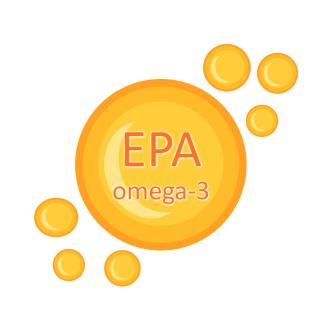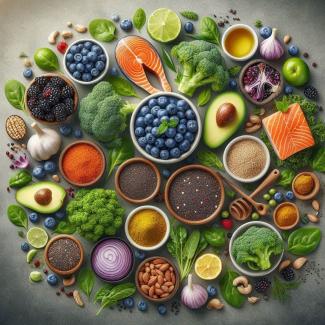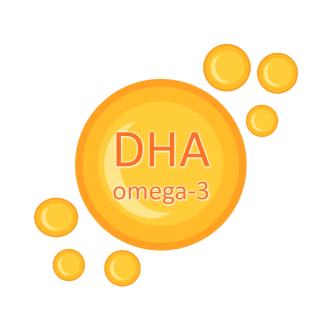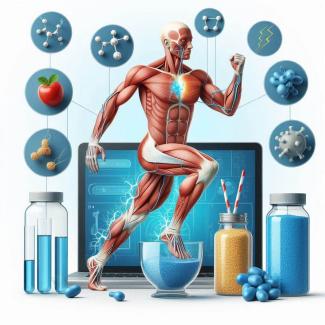
Vitamin D and magnesium are two essential nutrients that play crucial roles in the body, and there is indeed a close connection between them. Both are important for various biological processes, and a deficiency in one can affect the absorption and functioning of the other. Here are some key points about their interrelationship:
- Calcium Absorption: Vitamin D is critical for the absorption of calcium in the intestines. Calcium is essential for the health of bones, muscles, and the nervous system. Magnesium also plays a role in the activation of vitamin D, which enables better calcium absorption.
- Calcium Regulation: Magnesium also contributes to the regulation of calcium levels in the body. If you have a magnesium deficiency, calcium can accumulate in soft tissues, potentially leading to various issues, including muscle pain and cramps.
- Bone Health: Both nutrients are crucial for bone health. Vitamin D deficiency can lead to weakened bones, while magnesium deficiency can affect bone structure. Together, they contribute to maintaining strong and healthy bones.
- Muscle Function: Both vitamin D and magnesium are important for proper muscle function. Deficiencies in these nutrients can result in muscle cramps, weakness, and pain.
- Cardiovascular Health: Magnesium plays a significant role in cardiovascular health by helping to regulate heart rhythm and blood pressure. Magnesium deficiency is associated with an increased risk of cardiovascular issues. Vitamin D can also indirectly influence cardiovascular health.
It's important to maintain a balanced diet that includes an adequate amount of vitamin D and magnesium. If you suspect a deficiency in either of these nutrients, it's advisable to consult with your healthcare provider or a registered dietitian to determine how to address it. Additionally, individual nutritional needs vary, so it's wise to monitor your health and diet, and seek medical advice if you have any health concerns or doubts about your nutritional requirements.
Where can we find Vitamin D and magnesium?
Vitamin D and magnesium can be obtained from a variety of food sources and, in the case of vitamin D, from sun exposure. Here's where you can find these nutrients:
Sources of Vitamin D:
- Sunlight: Your skin can produce vitamin D when exposed to ultraviolet B (UVB) rays from sunlight. Spending time outdoors, especially during the summer months, can help your body produce vitamin D. The amount of sun exposure needed varies depending on factors like skin type, location, and time of day.
- Fatty Fish: Fatty fish like salmon, mackerel, and trout are excellent sources of vitamin D.
- Cod Liver Oil: This is a very concentrated source of vitamin D and is available as a supplement.
- Egg Yolks: Egg yolks contain small amounts of vitamin D.
- Fortified Foods: Many foods are fortified with vitamin D, including milk, cereal, orange juice, and some plant-based milk alternatives.
- Supplements: Vitamin D supplements are available over the counter and may be recommended by a healthcare provider if you have a deficiency.
Sources of Magnesium:
- Nuts and Seeds: Almonds, cashews, peanuts, and pumpkin seeds are good sources of magnesium.
- Leafy Greens: Spinach, Swiss chard, and kale are rich in magnesium.
- Whole Grains: Whole wheat, oats, brown rice, and quinoa contain magnesium.
- Legumes: Beans, lentils, and chickpeas provide magnesium.
- Fish: Fish like halibut and mackerel are good sources of magnesium.
- Dark Chocolate: High-quality dark chocolate (70-85% cocoa) contains magnesium.
- Avocado: Avocado is a fruit that is relatively high in magnesium.
- Dairy Products: Some dairy products like yogurt and milk contain magnesium.
- Supplements: Magnesium supplements are available and may be recommended if you have a deficiency or have difficulty meeting your magnesium needs through diet alone.
It's important to maintain a balanced diet that includes a variety of foods to ensure you get adequate amounts of both vitamin D and magnesium. If you have concerns about your nutrient intake or believe you may have a deficiency, it's advisable to consult with a healthcare provider or a registered dietitian to determine the best approach to address your specific nutritional needs.






